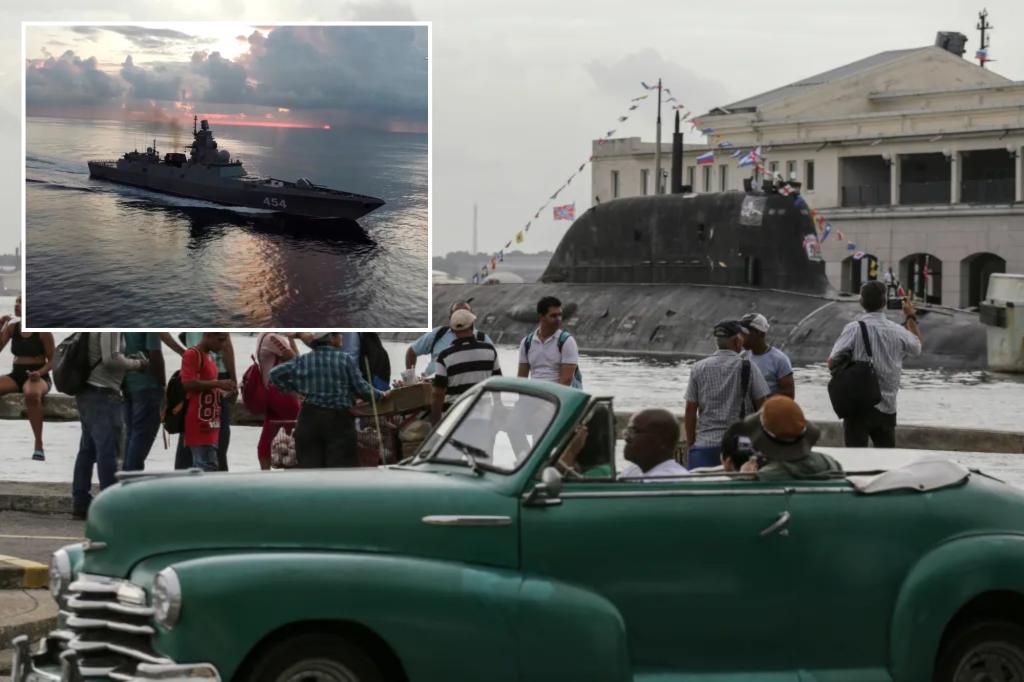Last week, tensions reminiscent of the Cold War resurfaced as a Russian nuclear-powered submarine, the Kazan, and accompanying surface ships, including the frigate Admiral Gorshkov, visited Havana, Cuba. Both the Kazan and the Gorshkov have the capability to carry nuclear-capable missiles, such as Zirkon and Kalibr cruise missiles, although Russia denied that they were carrying any on this trip. The Biden administration had a mixed reaction to the deployment, with some officials stating that it was routine, while others highlighted the significance of the Kazan’s nuclear capabilities. The missile test-firings conducted near Florida’s coastline brought back memories of the Cold War era.
The timing of Russia’s naval maneuver coincided with the G-7 meeting in Italy, where leaders discussed Western military aid to Ukraine in light of Russia’s invasion in 2022, as well as the future of that aid if Donald Trump were to win the upcoming presidential election. The deployment was seen as a message from Moscow, demonstrating its ability to project naval power far from home. In response, the USS Helena, a US nuclear-powered submarine, arrived at Guantanamo Bay, raising tensions between the United States and Cuba.
Reports indicated that upon learning of the Kazan flotilla’s destination in Havana, the White House had reservations about proceeding with a scheduled deployment of a US nuclear-powered submarine to Guantanamo. There were concerns that having both Russian and US submarines at the island could escalate tensions with both Russia and Cuba, prompting the Biden administration to reconsider its deployment plans. The Pentagon argued against altering US Navy deployments in response to Russian intrusions, emphasizing the importance of sending the right message to Moscow and others.
Vladimir Putin’s recent actions are seen as a display of Russia’s sophisticated weaponry and geopolitical reach, strategically positioned near the Florida Keys. Despite the economic damage resulting from Russia’s unprovoked attack on Ukraine, Putin appears to have stabilized the Ukrainian battlefield and made modest gains. With the White House dealing with conflicts in Ukraine and the Middle East, in addition to a tight presidential race, Putin sees an opportunity to flex Russia’s muscles and remind Western powers of its global reach. The Kremlin’s show of strength aims to highlight the vulnerabilities and internal challenges facing Western leaders.
The lack of decisive US international leadership has become evident during this presidential election year, with both candidates facing criticism for their handling of global issues. The White House’s response to the Russian naval maneuver in the Americas exposed Biden’s concerns about new foreign flare-ups undermining his image of statesmanship. The absence of a serious debate on America’s global position and defense of its interests and values in the world is perceived as a significant weakness by other countries. With Western leaders facing political challenges and internal unrest, Moscow’s assertive actions serve as a reminder of the shifting dynamics in the global arena.
In the midst of escalating tensions and power plays on the international stage, the need for strong and decisive US leadership has never been more apparent. The actions of Russia and other global powers highlight the importance of having a clear and coherent strategy to defend American interests and values. As the world watches the interactions between major players like the US, Russia, and China, the implications of these power dynamics are felt far beyond the borders of individual nations. The decisions made by leaders in Washington will have lasting consequences for the future of global security and stability.


